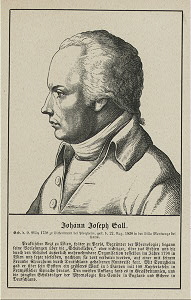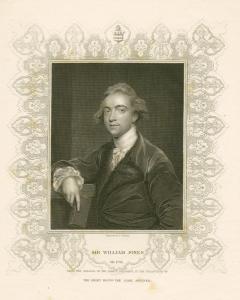By Willem Levelt
How do we speak and how do we understand language? It is widely believed that the scientific study of these uniquely human abilities was launched during the 1950s with the advent of Noam Chomsky’s generative linguistics. True, modern psycholinguistics received a major impulse from this “cognitive revolution,” but the empirical study of how we speak and listen and how children acquire these amazing skills has its roots in the late 18th century. By the end of the 19th century the psychology of language was an established science and the field was booming up to World War II. Empirical psycholinguistics emerged from four roots.
The Viennese engineer Wolfgang von Kempelen spent 20 years constructing a “speaking machine”. His 1791 book contains a precise construction manual. Copies have been built and indeed, the machine can articulate complex utterances such as Leopoldus secundus. It is the first serious working model of the vocal tract. During the 19th century the study of speaking became an experimental endeavor. It became possible to exactly measure the “mental durations” involved in naming pictures, colors, or numbers. Wilhelm Wundt’s psychology laboratory in Leipzig, the first of its kind, became the cradle of experimental psycholinguistics.

Jean-Jacques Rousseau’s Émile of 1762 pleaded for a reform of education, a “natural” education without drill. Rousseau’s plea for the careful observation of children initiated the keeping of diaries by parents and teachers. Philosopher Dietrich Tiedemann was the first to publish a diary, in 1787. It follows his son’s development during the 30 months since his birth and includes a number of observations on Friedrich’s acquisition of speech. More diaries followed during the 19th century, but diary studies became a real boom after Darwin (1877) published his own observations on son William’s early development. Studies of language acquisition, for a variety of languages, kept appearing till the present day. They became an important database for theories of language acquisition.
Sanskrit scholar William Jones formulated the lexical affinities between Sanskrit, Greek, and Latin in his 1786 lecture for the Asian Society of Calcutta. Such affinities among Indo-European languages had been observed since medieval times, but the budding Romantic notion of evolution became the impetus of explaining these affinities from a common origin of these languages. There must have been some proto-language from which all languages in the family evolved. This raised the question of how primordial human beings began to speak such a simple proto-language. This, one realized, was a psychological issue. Ever since, the empirical study of language origins and language functions in human communication has been an important chapter of psycholinguistics. Studying the emergence of language, in particular of sign languages, is still a rich chapter of psycholinguistics.
Peace did not always reign in the community of psycholinguists. Major controversies arose around World War I. In the European tradition it had always been a matter of course that language use is a mental phenomenon. But this was anathema for emerging American behaviorism. Speech acts are mere responses to stimuli; there is no mind mediating between the two. But peace was literally and seriously disturbed during Hitler’s regime. European leaders in psycholinguistics emigrated, mostly to the United States, in two waves. First, right after Hitler came to power in 1933, almost immediately ordering the dismissal of Jewish staff at German universities. Second, after the Austrian Anschluss in 1938 and the following invasions all over the European continent. It was only after World War II that the four roots of psycholinguistics sprang to live again as an interdisciplinary theory of human communication.
Willem Levelt is the author of A History of Psycholinguistics: The Pre-Chomskyan Era. He is director emeritus of the Max Planck Institute for Psycholinguistics in Nijmegen, The Netherlands, which he founded in 1980. He is also emeritus honorary professor of psycholinguistics at Nijmegen University. He has a PhD in psychology from Leiden University (1965), was a postdoctoral research fellow at Harvard University, a visiting professor at the University of Illinois, full professor of psychology at Groningen University, member at The Institute for Advanced Study in Princeton (1971-1972), professor of experimental psychology at Nijmegen University and, since 1980, scientific member of the Max Planck Society. He has published widely in psychophysics, mathematical psychology and psycholinguistics. His books include On binocular rivalry(1965), Formal grammars in linguistics and psycholinguistics (3 Vols, 1974, republished in 2008) and Speaking: From intention to articulation (1989).
Subscribe to the OUPblog via email or RSS.
Subscribe to only psychology articles on the OUPblog via email or RSS.
Image Credits: (1) Dr. Joseph Francis Gall. Print Collection portrait file. Source: NYPL Digital Gallery
(2) Sir William Jones. Print Collection portrait file. Source: NYPL Digital Gallery




[…] is a post on OUP’s blog by William Levelt on the history of psycholinguistics in the pre-Chomsky […]